A few weeks ago, after Memphis protesters had already been joining in the national calls for police reform and accountability, standing firm in the plaza outside of City Hall, organizers felt something extra was in order to bolster morale and keep the demonstrators motivated. That’s when Joseph Higgins’ phone rang.
“Man, it was a beautiful experience,” Higgins tells me. “Some friends of ours hit us up and said, ‘We’re doing something at City Hall and we really need some music. We asked all these different bands and we haven’t heard back from ’em.’ This was Sunday night [June 21st]. And some bands told them, ‘Man, I don’t want to mess up my look in the scene or have clubs treat us different because we’re standing up for what’s right.’ I thought, ‘Wow, that’s crazy to hear about Memphis musicians not wanting to go into the trenches.’ We were like, ‘Man, this is right up our alley.’”
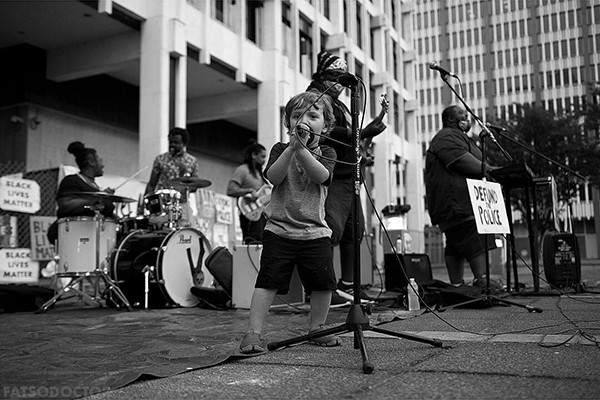 David Vaughn Mason
David Vaughn Mason
Chinese Connection Dub Embassy protest
That would be an understatement. Joseph is one of three brothers who have wed a passion for music and a passion for justice in equal measure. Indeed, the Higgins family has been pivotal in distilling political outrage and righteousness into song. It’s a rare talent, but when done right, it’s galvanizing.
The band in question was the Chinese Connection Dub Embassy (CCDE), one of the few reggae bands in the region, and one of the most politically outspoken. “We’re all about truth and rights,” says Higgins, “and spreading the word of injustice, and trying to get some kind of solace at the end of the day for all the stuff that’s going on in the world right now — from COVID-19 to police brutality to No. 45 acting crazy.”
And it was clear that the band raised everyone’s spirits at City Hall. “I felt all the energy from the city. They were so supportive. The whole essence of ‘we’re all in this together’ really stood out. We had a little kid that jumped up in the middle of our set, couldn’t have been more than 4 or 5 years old.”
That Sunday on the plaza was the perfect time to unveil the band’s new single, “Dem A Callin (Flodgin),” released July 10th on Bandcamp. “I won’t be bought, I won’t be sold. We will decide how our story’s told … Dem a callin’!” sings guest vocalist Webbstar on the track. The words ring true in this historical moment, when deciding how the story is told is half the battle. As stories develop around any given incident, the different narratives begin to coalesce and compete. There is the story embedded in, say, a police department statement, versus the story in a live video of the incident. Indeed, the simple phrase “Black Lives Matter” itself offers a narrative in three simple words, shaming those who would terrorize Black people. It’s not surprising that the cover image for CCDE’s single is a protester wearing a #BLM face mask.
These are not the kinds of songs typically associated with the Bluff City. The weight and momentum of Memphis’ rich musical history can obscure those less-illuminated niches where, over the decades, songs that examine the social fabric, or rip it wide open, have emerged. But they are there, and with this story, the Memphis Flyer aims to honor them.
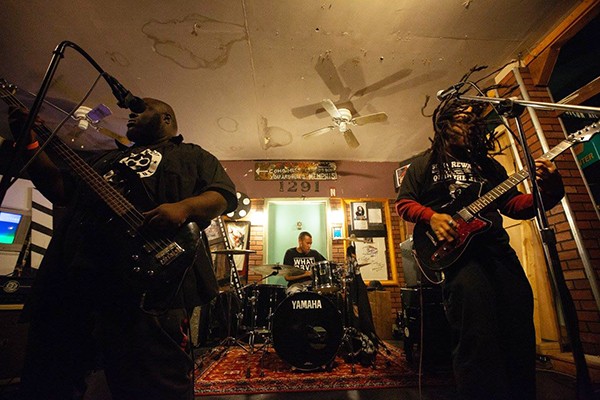 Ziggy Mack
Ziggy Mack
Negro Terror
CCDE is only one example. In fact, it’s only one example from within the Higgins family. Out of that same household sprang the hardcore punk band Negro Terror, which was equally unabashed about calling for progressive change through the power of music. But the genesis of both bands has a tragic side: Their guiding light was the oldest Higgins brother, Omar, whose sudden death after a staph infection in April 2019 was mourned throughout the city.
Says brother David of the two bands: “They both were started by Omar out of his love of music and community. He wanted to start a big musical family and bring people together. And your color, race, religion, sexuality didn’t matter. And that’s how we were brought up. My mother and father were into bringing people together. Our whole family is all about truth and rights. Fighting against oppression and injustice. My mother was a member of the Urban League. So it’s in our blood. As far as Negro Terror, it’s still going! We’re actually finishing up a record, Paranoia. Omar titled it that. He’s all over the record.”
Negro Terror also lives on in the 2018 documentary of the same name by director John Rash, which culminates in a music video for their most popular song, “The Voice of Memphis.” It’s a hardcore homage to the indomitable spirit of this city rising up to be heard, but the song has a surprising provenance. “It was originally a white power anthem, and Omar completely flipped it on its head,” says David. “It was by a band called Screwdriver. The singer, Ian Stuart, was a white supremacist Nazi, and he said, ‘That’ll be the day when I hear a n*gger cover one of our songs.’ And not only did Omar cover it, he changed the lyrics around, made it Memphis, and did it better!”
Negro Terror is one inheritor of the city’s punk legacy, which has often been the source of our most politically charged music. The punk label, of course, is no guarantee of political content, but the genre did usher a new social consciousness into rock music when it sprang from the gutters in the mid-1970s. That was true in Memphis as well, though that was when punk was more of an attitude than a formulaic sound. One of the most punk moments of that decade was when roots rockers Mudboy & the Neutrons capped off an outdoor music festival with their take on “Power to the People”: “Hey hey, MHA, someone moved Downtown away,” quipped Mudboy member Jim Dickinson to the Memphis Housing Authority. “I’ve got a new way to spell Memphis, Tennessee: M-I-C, K-E-Y, M-O-U-S-E!”
That era also saw the premiere of Tav Falco, who sang Leadbelly’s “Bourgeois Blues,” then cut his guitar in two with a circular saw. With his Unapproachable Panther Burns, he would continue to dally in political waters, with songs like “Agitator Blues,” “Cuban Rebel Girl,” or even 2018’s “New World Order Blues.”
But others soon took the impulse in different directions. One of the sharpest purveyors of political pith since the 1980s has been one-time Memphian Joe Lapsley, now a college history instructor in the Chicago area.
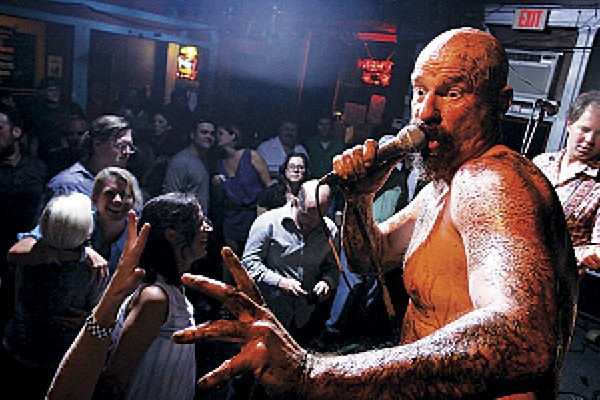 Don Perry
Don Perry
Neighborhood Texture Jam
“I’m the lead singer of Neighborhood Texture Jam,” says Lapsley. “If anybody knows about having to explain progressive issues to white people in Memphis, it would be me. To be fair, Texture Jam tends to be a magnet for people that are attracted to something more liberal than what they’re accustomed to in this milieu. But there’s also people there that don’t give a shit about that stuff, you know?”
With songs like “Rush Limbaugh, Evil Blimp,” NTJ made no bones about their leftist tendencies, instincts which made some of their best material relevant to this day. “Wanna see the rebel flags, wanna go and see ’em?” Lapsley bellows in “Old South.” “They’re next to the Swastikas in a museum!” At times, Lapsley took the lyrics a step further, ripping up or burning Confederate flags in their early shows. “Listening to Texture Jam back then,” Lapsley says now, “you were getting a taste of Black Lives Matter before it even happened.
“In Oxford on beer bust night, I said, ‘Anybody that doesn’t want to celebrate the entry of James Meredith here on the 30th anniversary of his registration, well they can just get up and leave!’ These big white football player dudes and their dates all stood up from the first four or five tables. I could see the fear go through the band, so I said, ‘If they come, you’ve got guitars and basses. Just start swinging.’”
Pezz was another band from that era that carries on today with sporadic reunion shows. Their 2017 release, More Than You Can Give Us, updates the Reagan-era punk that first inspired them to today’s struggles, as captured by the album cover, which juxtaposes an image from the 1968 sanitation workers’ strike with one of protesters shutting down the I-40 bridge in 2016. Meanwhile, Pezz frontmen Ceylon Mooney and Marvin Stockwell carry on to this day as community organizers and activists.
The punk spirit lives on in countless other Memphis bands, though what punk actually is is debatable. “If you do hear a band that’s truly just punk, it’s probably kind of boring at this point,” says Natalie Hoffman of NOTS. Yet she and NOTS are usually lumped in with the tag. And while NOTS’ lyrics can often be oblique, they naturally venture into gender politics by virtue of NOTS being an all-woman band in the hyper-masculine punk scene. In that context, the alienation of “Woman Alone” is a unique social critique: “Woman alone/in a landscape/is it always the same? What’s it like/to be a subject analyzed?”
The truth is, songs of political or social critique can take many forms, and they need not wear their outrage on their sleeve. Bassist MonoNeon wrote “Breathing While Black” after seeing the first footage of George Floyd’s murder at the hands of Minneapolis police, but gave his outrage the soft-sell in this case. “While the song came from being saddened by George’s murder, the song is for every Black man and woman who has dealt with police brutality,” he says. And the mellow mood of the sparse Prince-like funk and jazzy harmonies does indeed give the track a more generalizable air of contemplation. It’s a universal song of mourning, in a way, with enough bounce to keep listeners motivated.
Some performers make the message even more palatable by taking a more subtle approach. Brandon Lewis, a new artist with David Porter’s Made In Memphis Entertainment (MIME) label, has just released a track produced in January which relates to the current Black Lives Matter movement, titled simply “Black Man.”
As Porter says, “’Black Man’ is not a protest song, it’s an inspirational song about enlightened people, about the pride that these young people feel today. Because I know you’re viewing me as a Black man, let me let you feel the pride that I have in being a Black man. That’s why that hook works.” Proffering a positive message of self-affirmation is a far cry from burning the stars and bars onstage, but may ultimately be just as effective. For at the heart of today’s protests is a demand for dignity and respect.
 Matt White
Matt White
John Paul Keith
Those qualities can be celebrated in unexpected ways. Americana and rock-and-roll singer/songwriter John Paul Keith recently released his song, “Take ‘Em Down,” in sympathy with the TakeEmDown901 movement, but it begins, surprisingly, with a bit of Southern pride. “You can tell I’m from the South when I open up my mouth …” he sings, before turning to the chorus, “Them statues got to go in every state across the USA.” This is no pride in whiteness, but a refashioning of what “Southern” can mean. As the song goes on, you come to understand that Keith is celebrating a new vision of Southerness that embraces our diversity. “Can you hear the Southern feet marching in the street/And someone saying on a megaphone/No Trump, no KKK, no fascist USA/And we ain’t gonna rest until they’re gone.”
“The music is very much Southern,” says Keith. “That tune and those chords, you could take that and do it in a gospel way, or the way I did it, which was more country or rockabilly. It would work either way. But I was trying to repurpose that sound, and use it to say something about this thing. And it also came organically out of me like that. That’s what popped in my head ’cause that’s who I am. I liked using something that comes from the rockabilly tradition for this purpose. I liked that, the idea of refashioning this sound to say something about these old statues.” It’s a rare hybrid of blunt political observations and subtle identity politics, and it works.
Protest has been the stock-in-trade of Memphis hip-hop for decades. While it can be argued that there is political dynamite in even the most gangsta trap track out of this city, simply by virtue of its hyperrealism, there have been select lyricists who step back from the euphoric rush of the crime spree and encourage more contemplation, even as they preserve the urgency of rap’s rapid-fire flow.
Though inactive since the untimely death of group member Fathom 9, the Iron Mic Coalition (IMC) are the undisputed kings of this realm, sometimes called conscious or knowledge rap. When producer IMAKEMADBEATS first returned to Memphis, having spent most of the early aughts in New York, the first artists to really capture his attention were the Iron Mic Coalition. One of the pivotal members was Quinn McGowan, a comic book creator, tattoo artist, and visual artist whose son Quinn is now affiliated with the Unapologetic collective. Another was Fathom 9.
As IMAKEMADBEATS recalls, “In my opinion, while IMC had various talents, Fathom 9, to me, was the most left-wing. I think that’s why I gravitated towards him early on. I went to his funeral, and I heard people walk up to the mic and say, ‘Fathom was weird in a way that made us be okay with being weird.’ He had no shame. He was past the point of comfortable and cute. You’d watch him and say, ‘All right, when is he gonna change positions?’ He did it in a way to where it was daringly uncomfortable. And you know you did your job if you inspired hundreds of people.”

Don Lifted
Among those who were so inspired were the Unapologetic team themselves, who often celebrate ‘weirdness,’ and in doing so, are helping to reshape the image of hip-hop and Memphis itself. While not all Unapologetic artists have a political ax to grind, the very process itself has a political impact. Artist and producer Lawrence Matthews, aka Don Lifted, has found the collective’s embrace of the strange to be liberating, both personally and politically, when he works with them on occasion.
“I’m not necessarily making protest songs per se,” says Matthews. “But I’m talking about my Blackness, my queerness, all of these things. My anxieties and fears around religious beliefs, and the juxtapositions of being in the South and being a Black dude that doesn’t fit into those boxes. Being called a white boy over there, but I’m still Black enough to get murdered over here. But don’t get it confused, I’m still what I am.
“I’m not signed to Unapologetic, but I’m affiliated. And you being allowed to show up is a great thing. The fact that I get to sing songs about what I do is political in a city where they do not allow anybody to have a national platform if it is not soul or street music. I have heard every single way you could shoot a person, every single way you could deal drugs, every single way that you could make street music. But I don’t always hear the way that Black men feel. So I appreciate the space where people are allowed to talk about things I talk about in my music, or that PreauXX talks about or that AWFM talks about. I’m very thankful for those spaces. My voice can be as different, as loud, as odd as it wants to be. And I got a lot of that from listening to conscious hip-hop music.”

Marco Pavé
Yet, while political or cultural struggles inform nearly all hip-hop, especially hip-hop that embraces “oddness” and the interior life, not many artists have picked up conscious hip-hop’s overt politics in the way the Iron Mic Coalition once did. One exception is Marco Pavé. His 2017 debut album, Welcome to Grc Lnd, was a shot across the bow, with thought-provoking lyrics like “Bring me a coffin/’Cos they won’t accept that I am so fluorescent /they place us in darkness/I still see ancestors” capturing the same zeitgeist that inspired Pezz. Blocking the I-40 bridge in 2016 was a turning point for both public demonstrations here and the artists who were inspired by them.
Welcome to Grc Lnd might be considered a concept album of sorts, centered on those protests, but Pavé’s next move surprised many: a hip-hop opera revolving around the same concepts and tracks, redubbed Welcome to Grc Lnd 2030, with a premiere at Playhouse on the Square in 2018. It was the kind of multimedia tour de force that is all too rare in Memphis, combining music of the street with music of the salon, and a heavy dose of political critique.
Since then, the critique has moved into the streets, as apathy fades and a sense of empowerment spreads. Combining demonstrations with a band, as the organizers who invited CCDE Downtown last month were doing, may be the newest frontier in politically charged music-making. It’s a powerful combination. Music has a way of reframing old truths in a new light, and of presenting complex realities in concise, poetic form. And that can change minds.
As Joseph Higgins reflects, “It’s been a slow drip. It’s hard to educate people one by one. So with Negro Terror, the name and the concept, Omar was able to not only preach the message of unity, but to teach. And get people to not just understand, but overstand.”
And stand they will, backed by the beats and riffs and rhymes of Memphis musicians who keep one eye on the world and another on the dream.
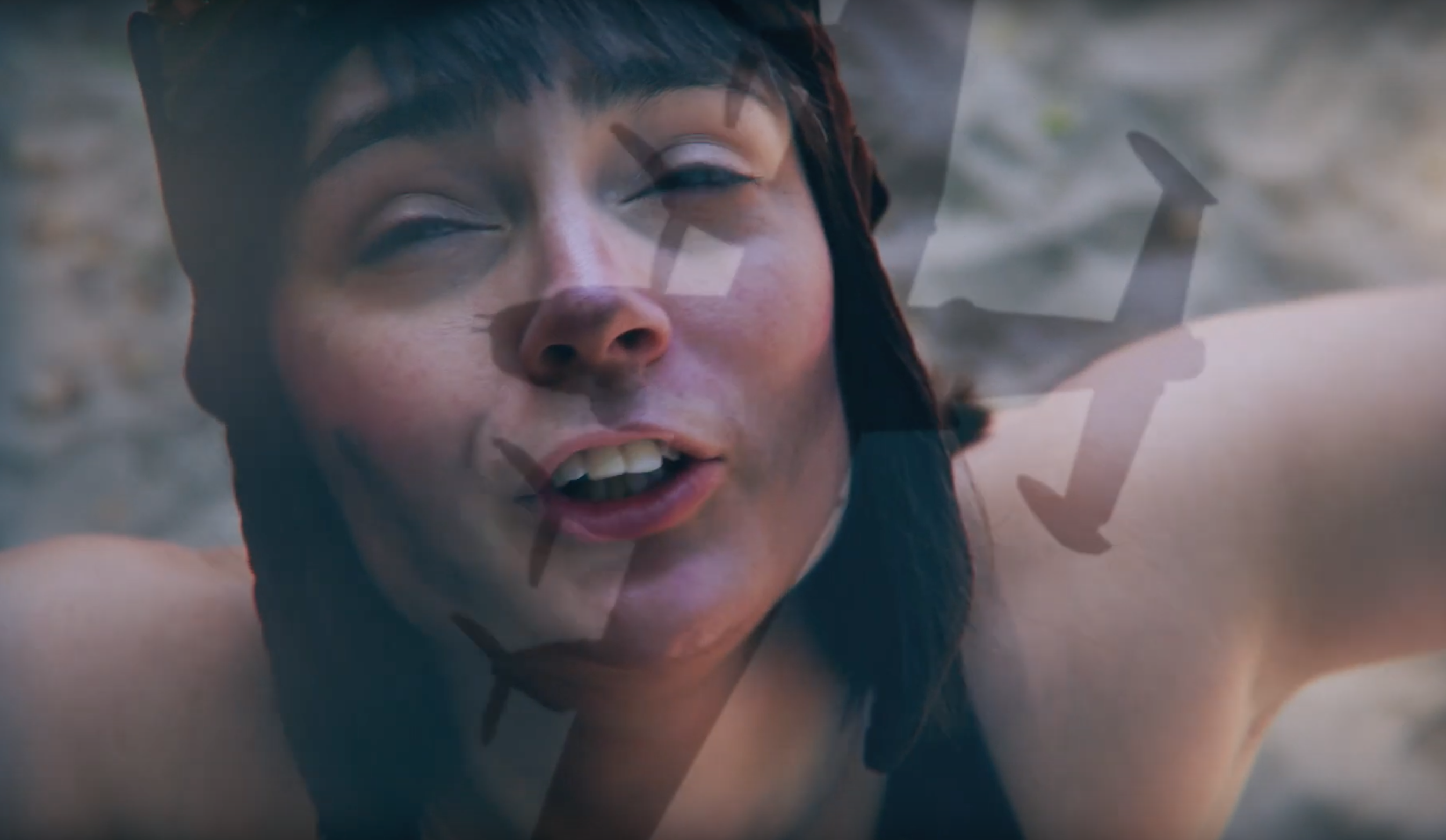
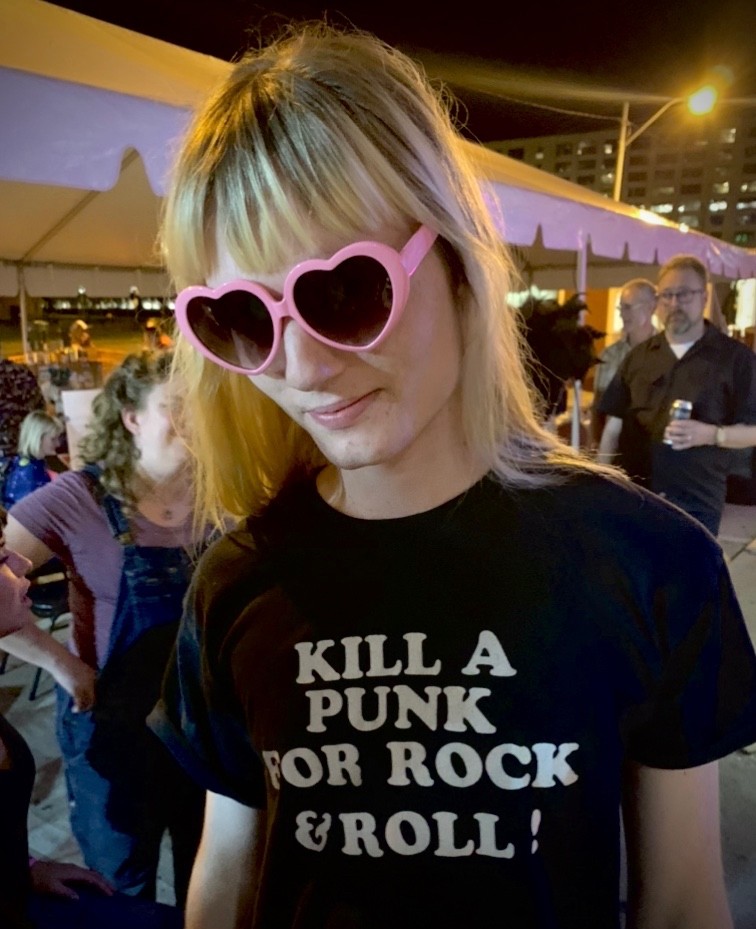
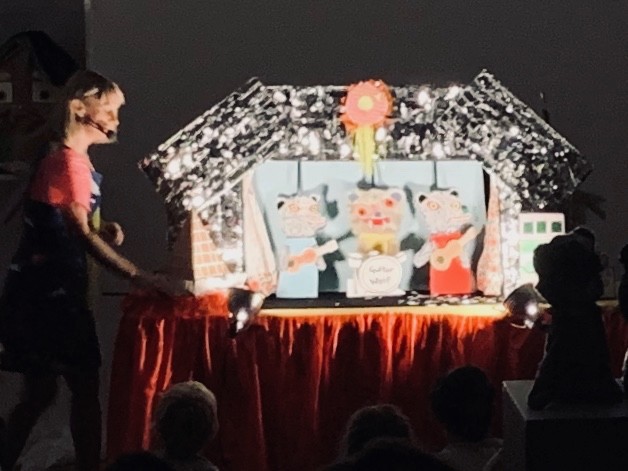
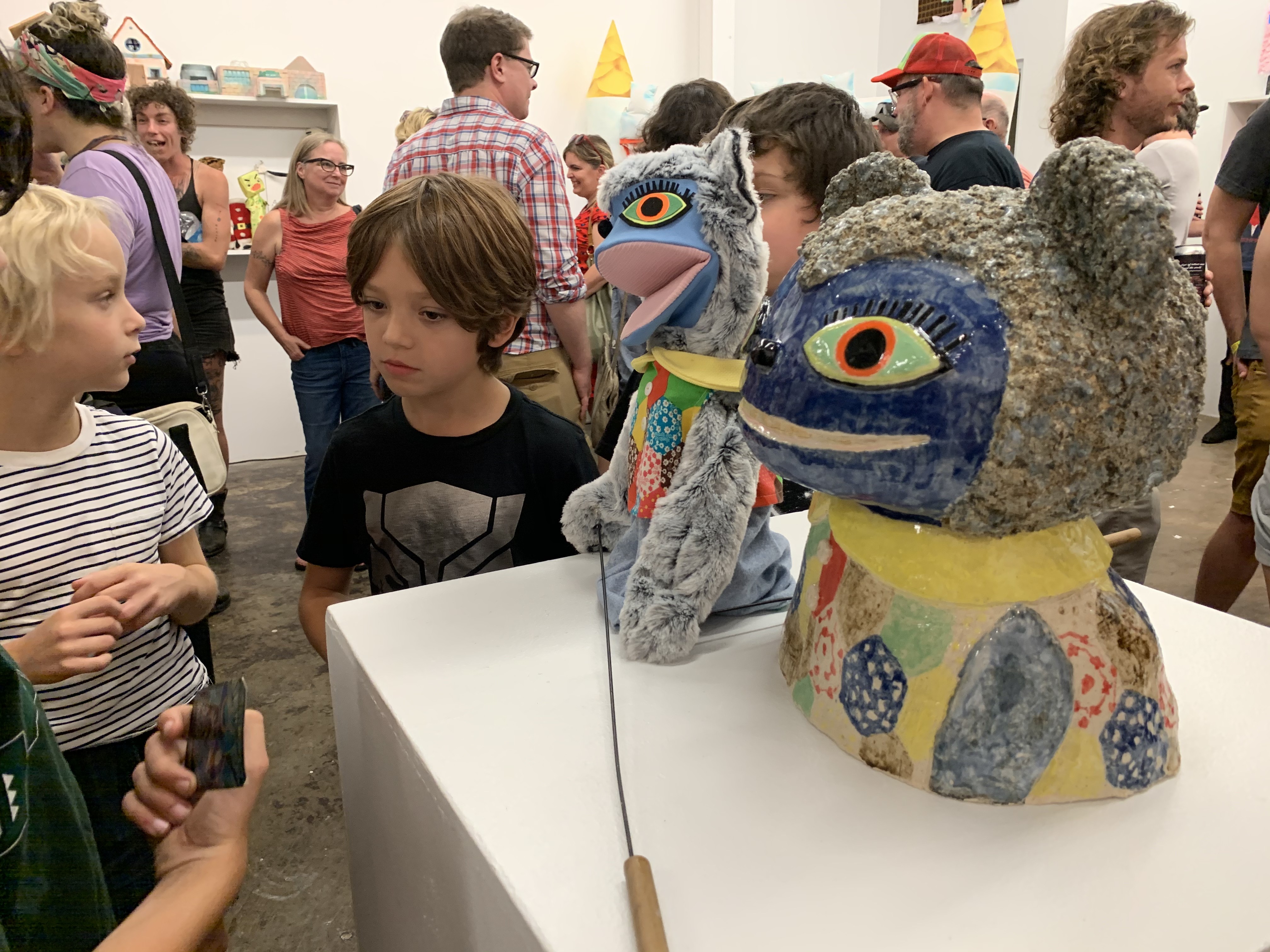


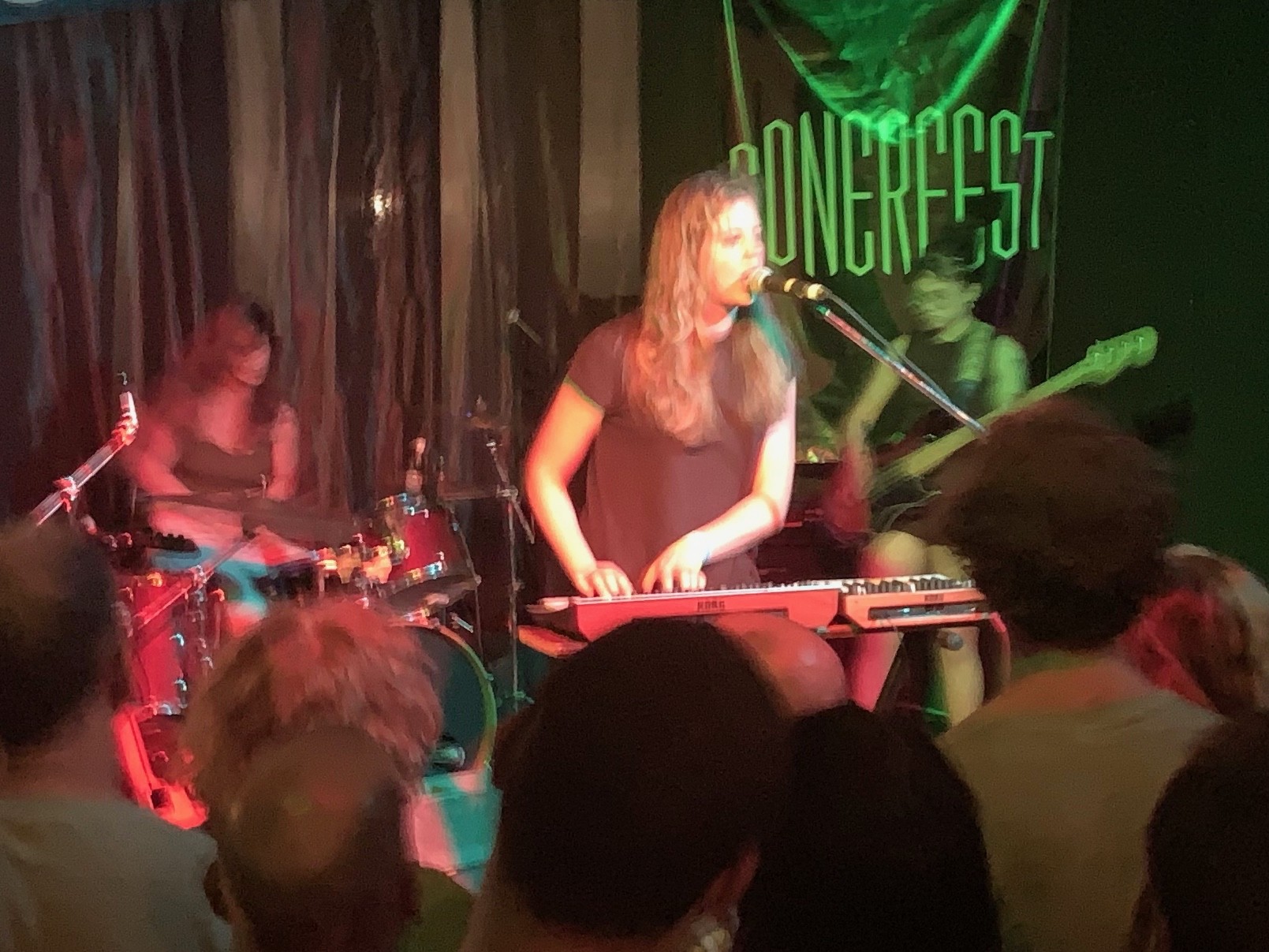
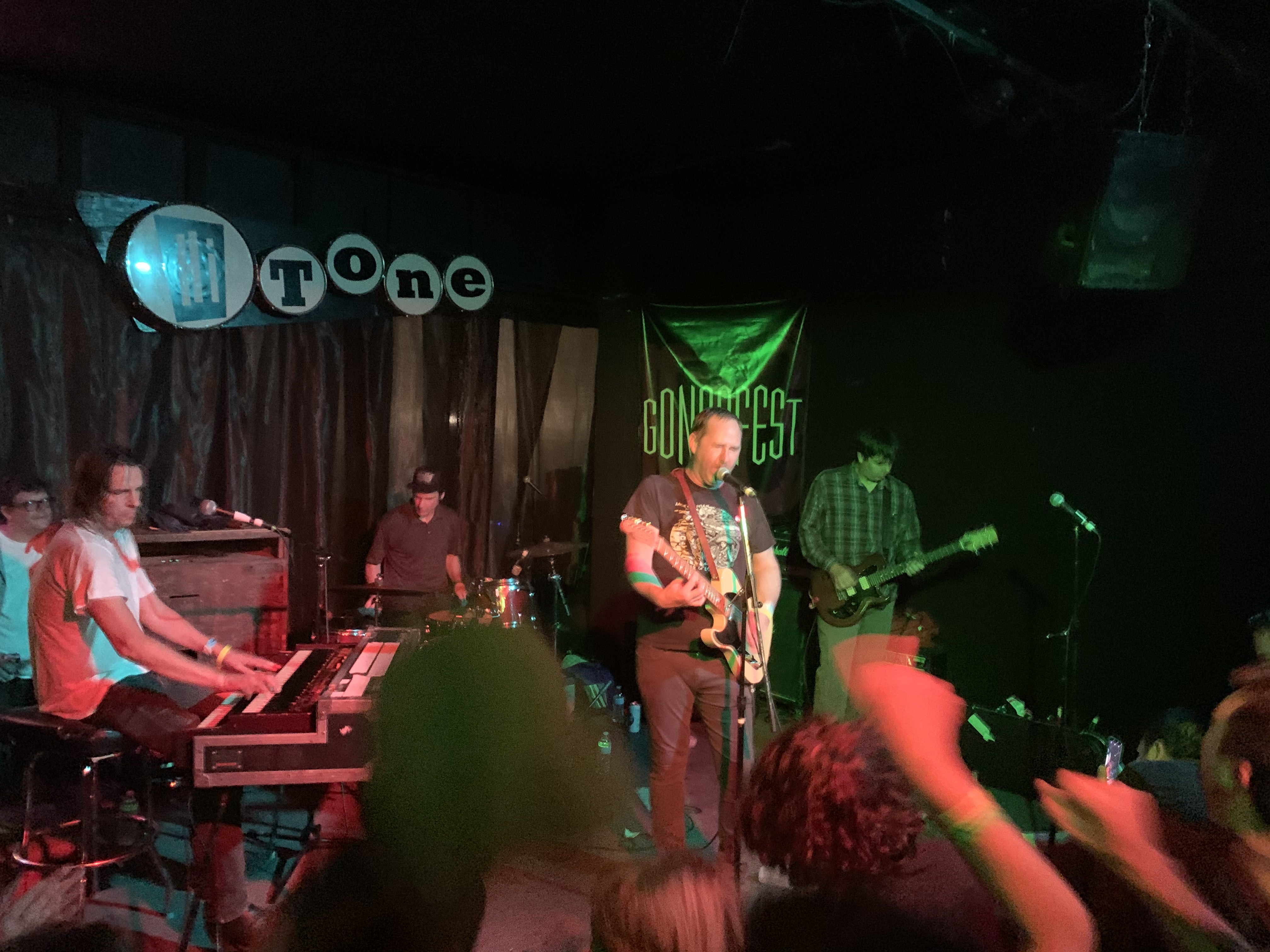

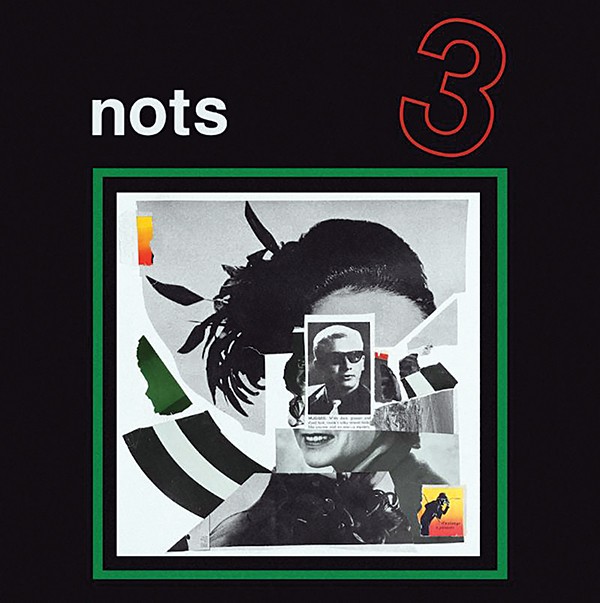
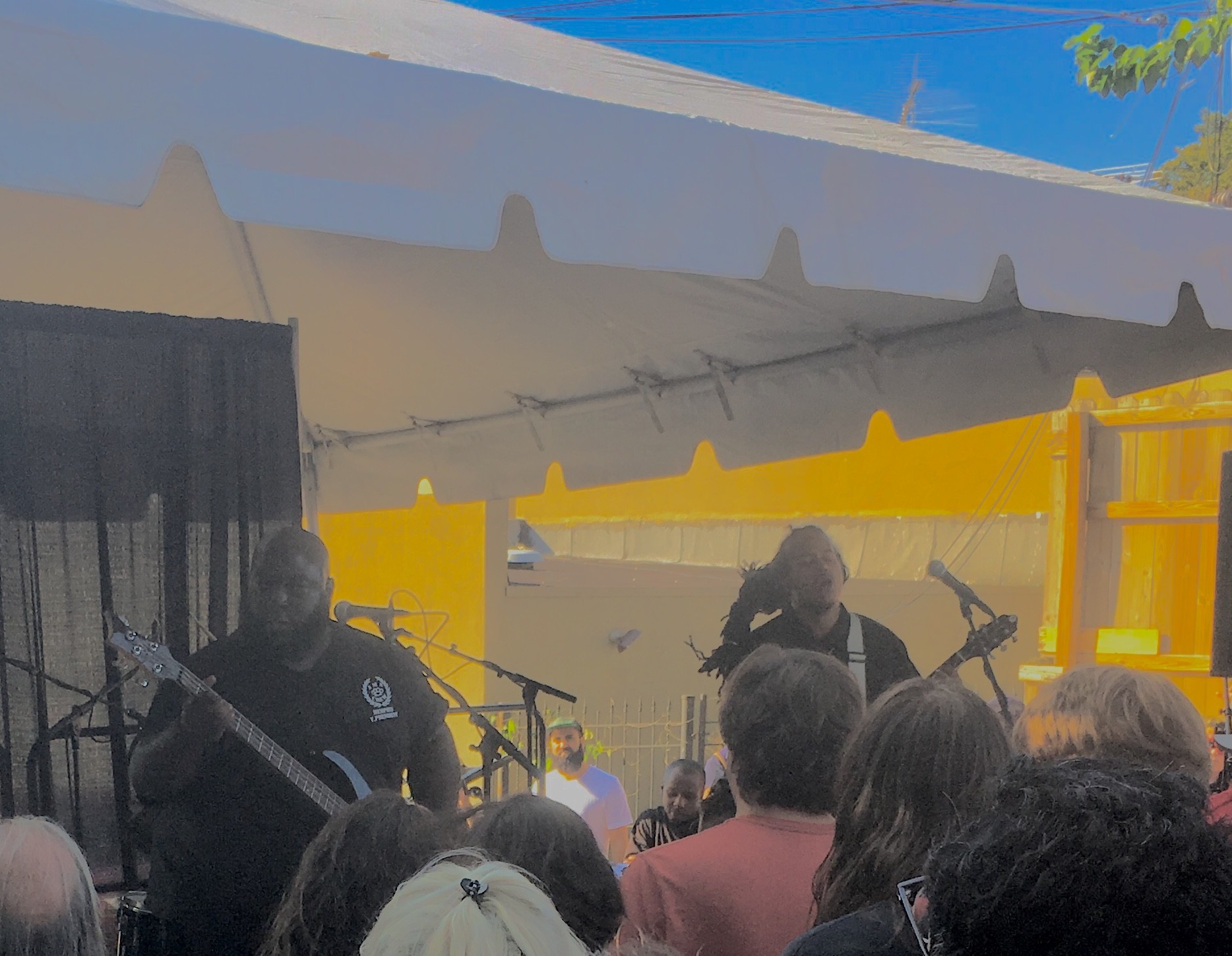 Alex Greene
Alex Greene 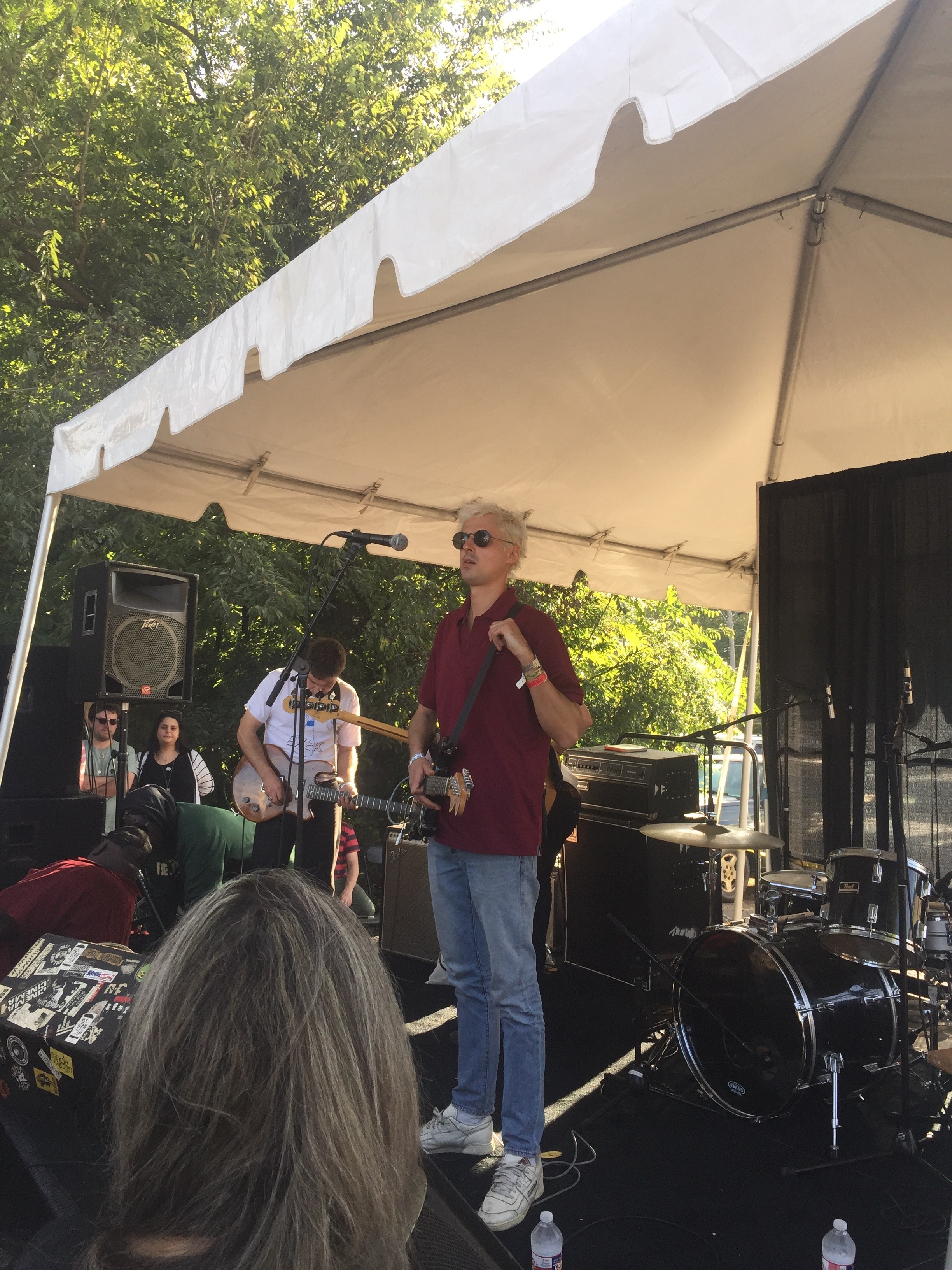 Michael Donahue
Michael Donahue  Alex Greene
Alex Greene 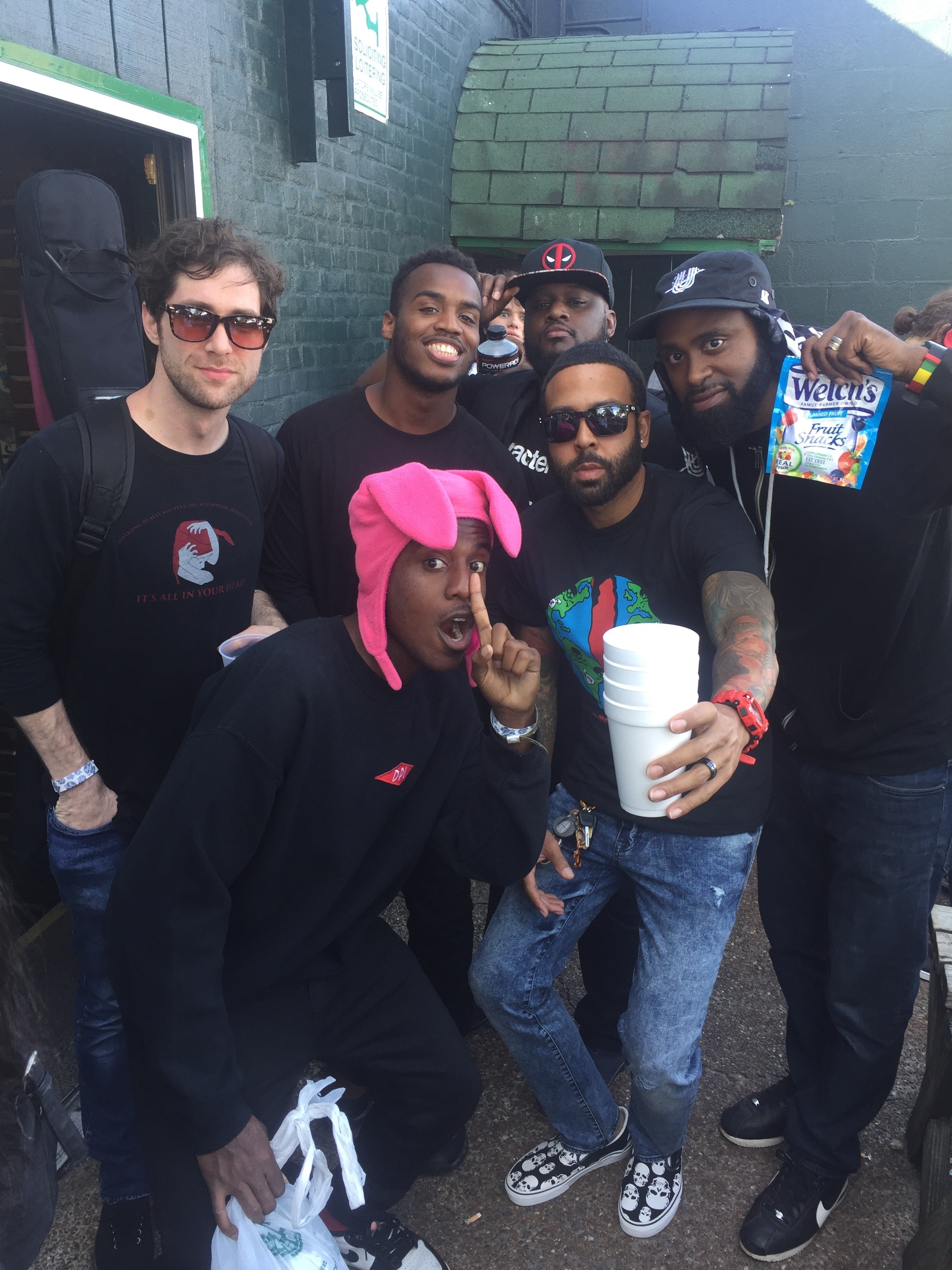 Michael Donahue
Michael Donahue  Alex Greene
Alex Greene 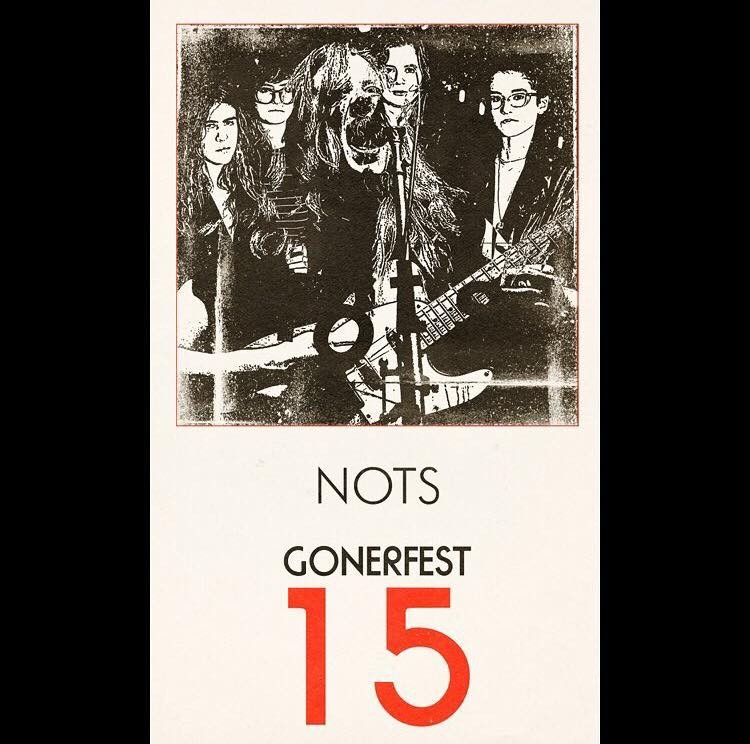 Goner
Goner 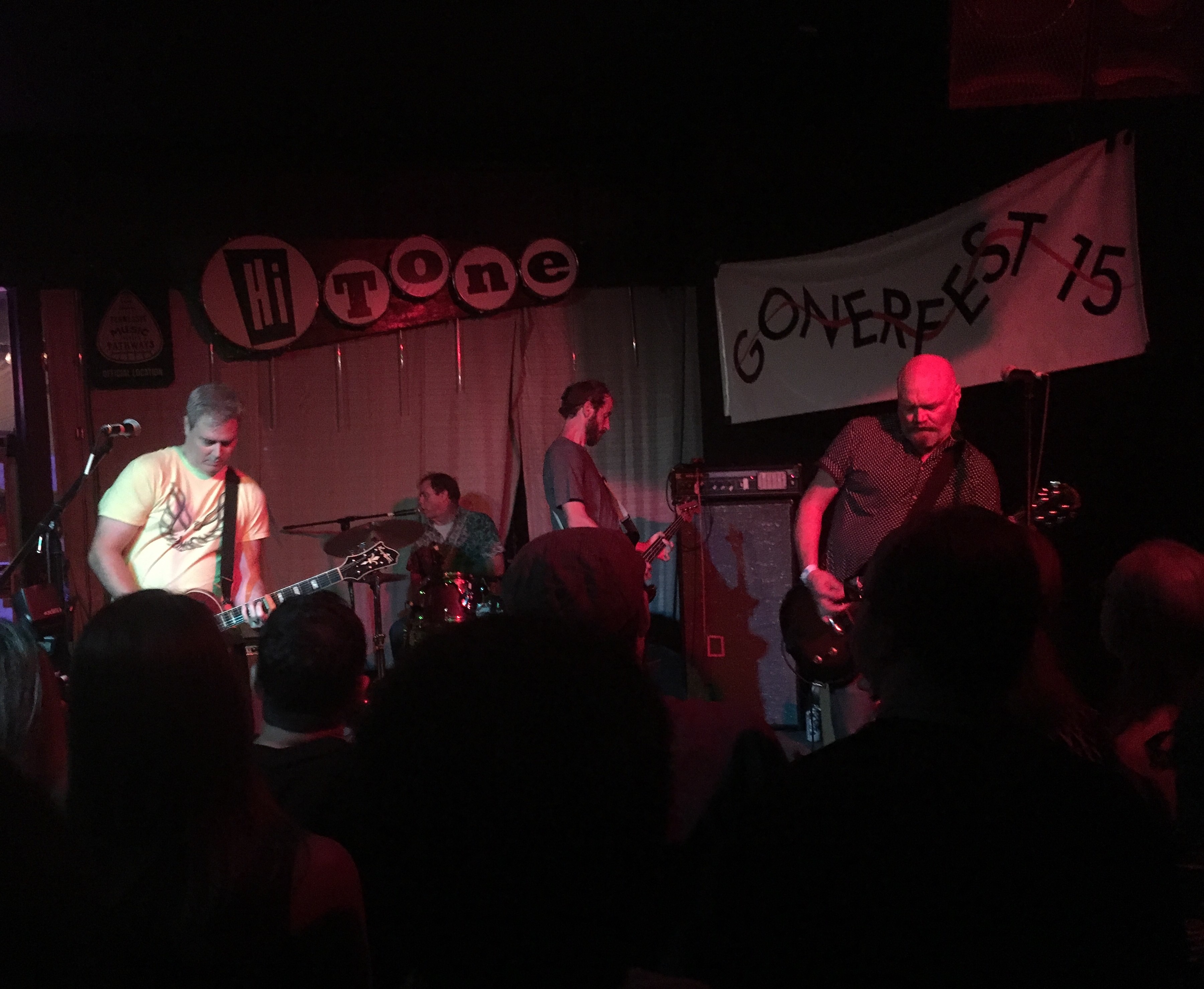 Alex Greene
Alex Greene 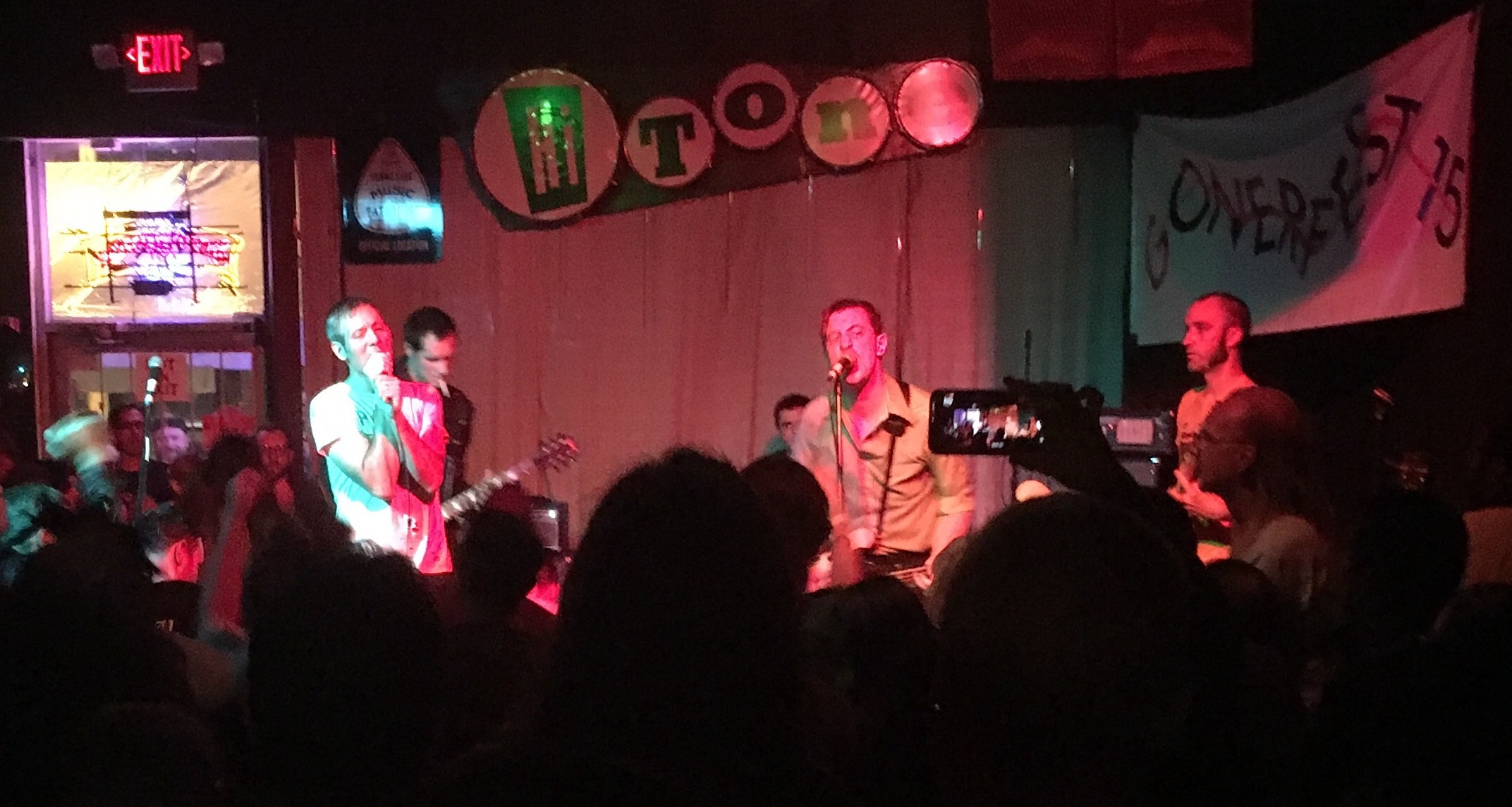 Alex Greene
Alex Greene 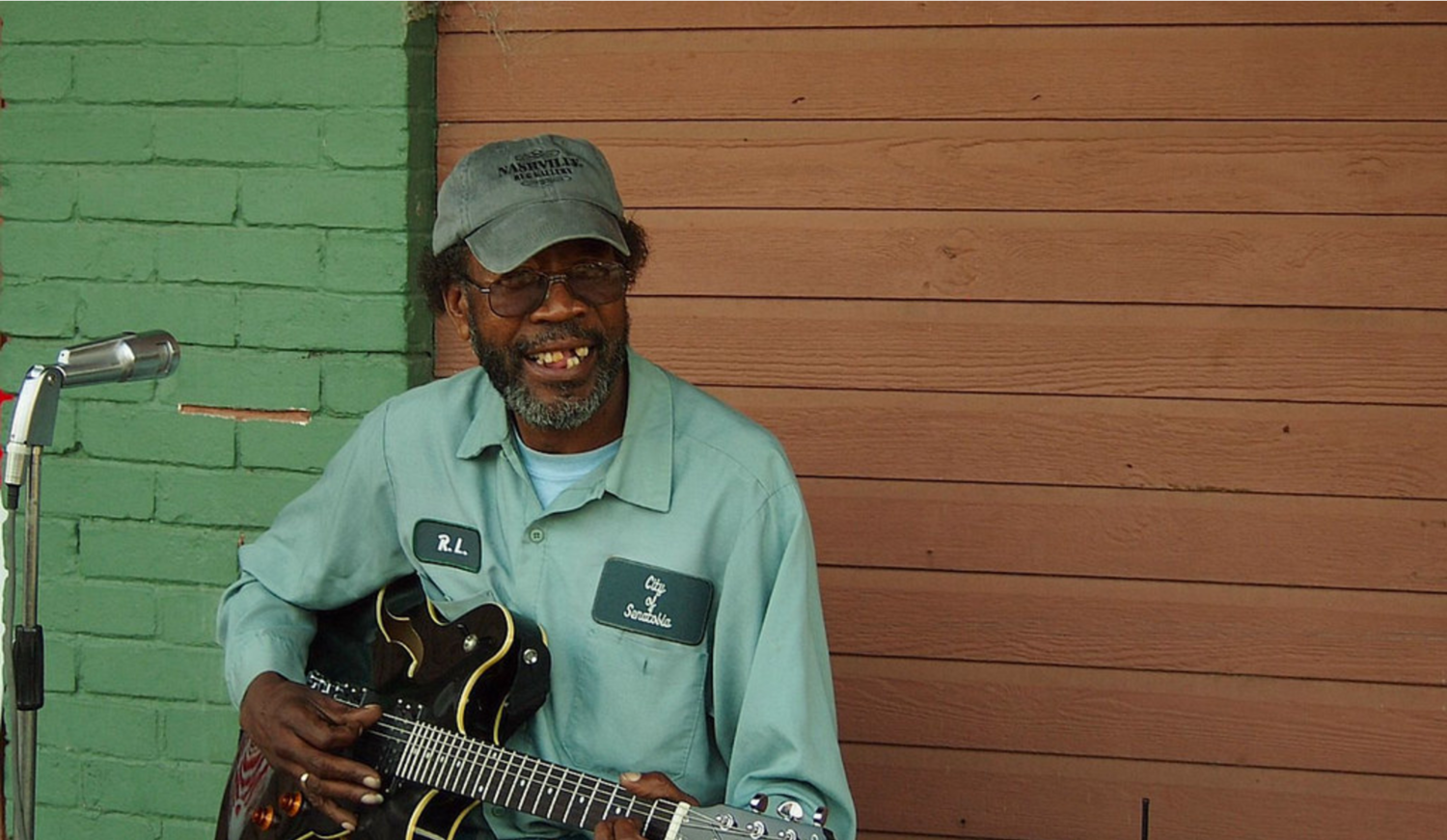

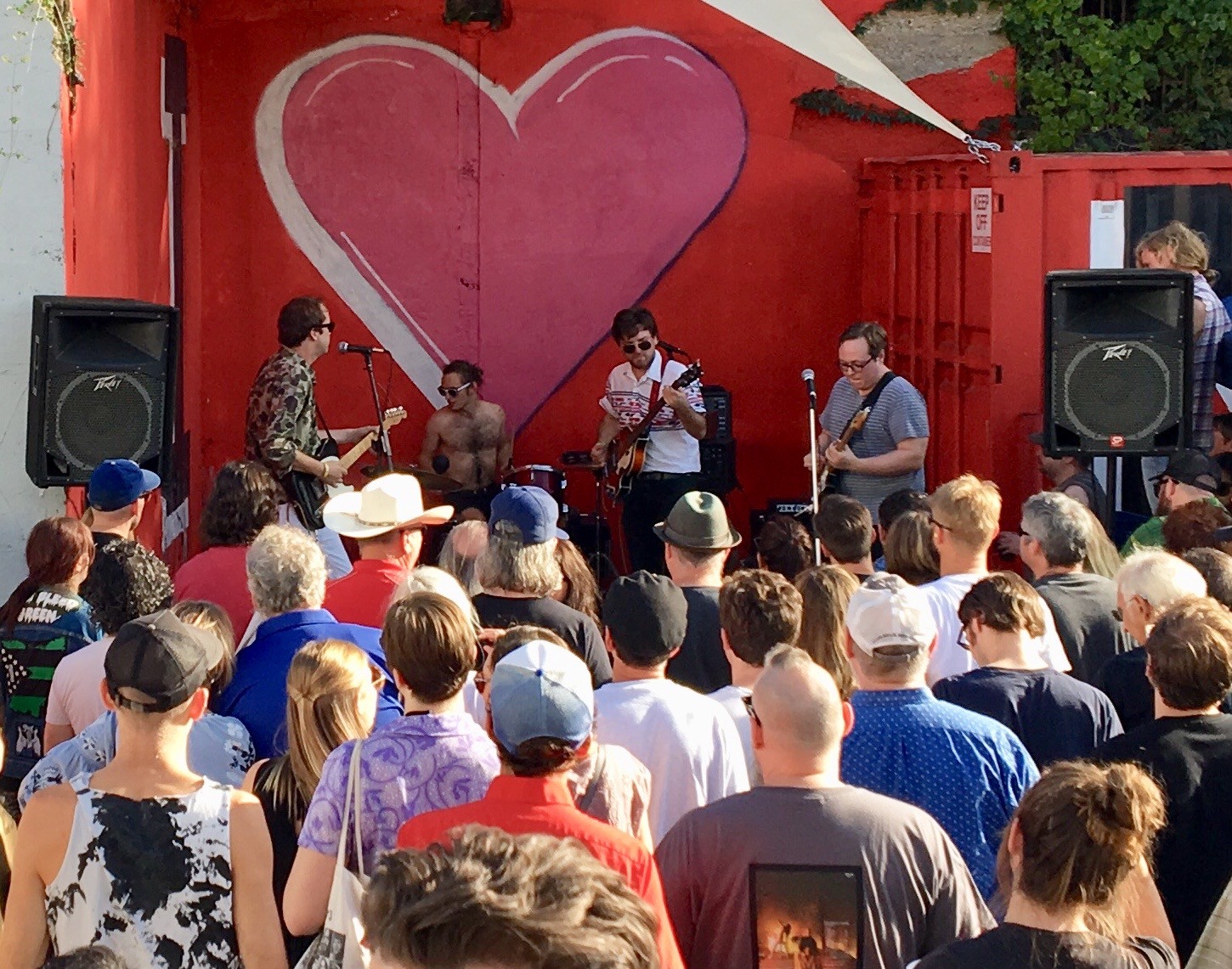




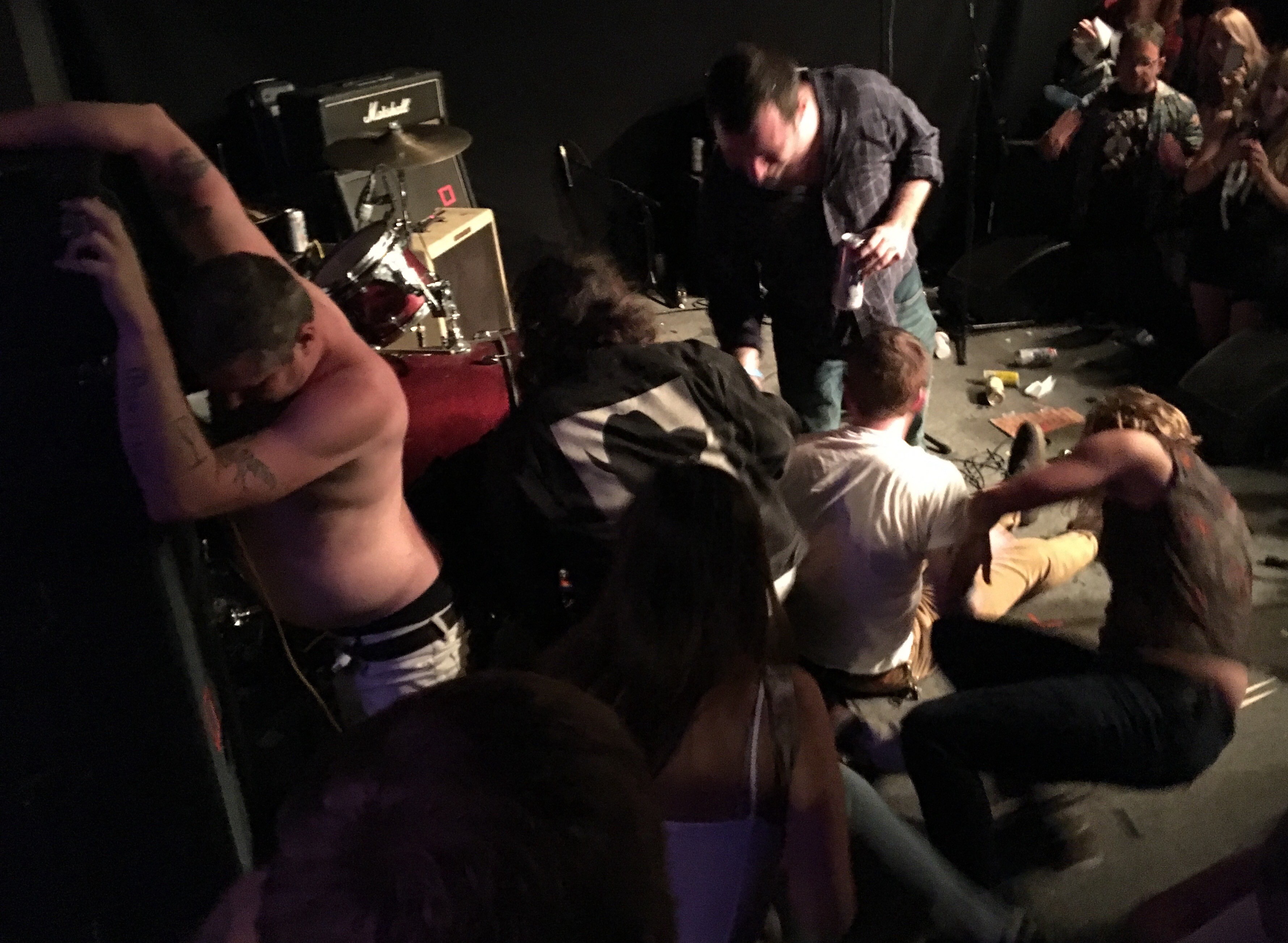

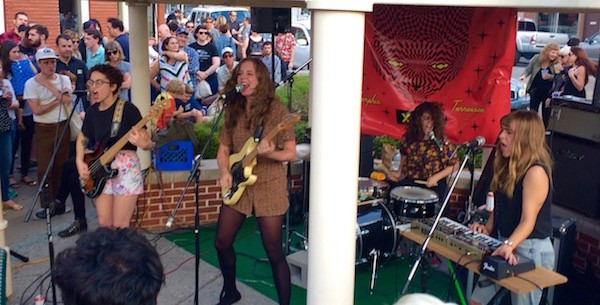
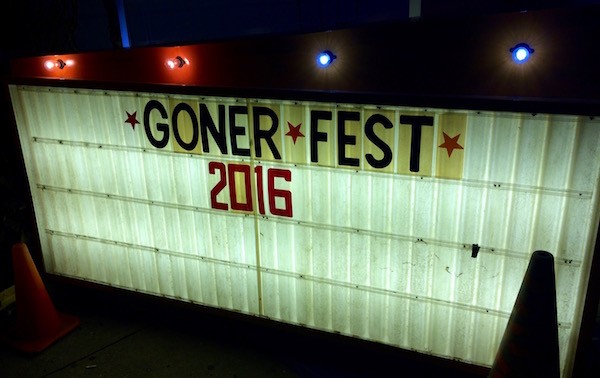


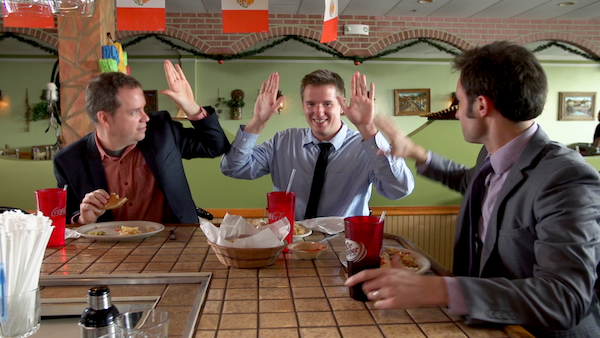
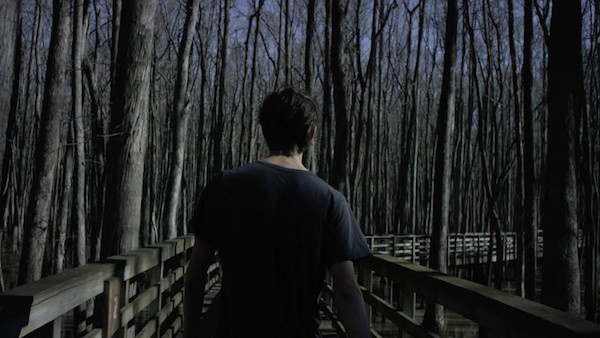
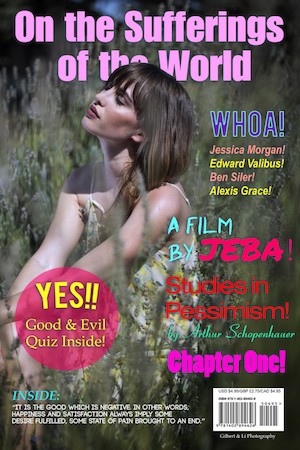
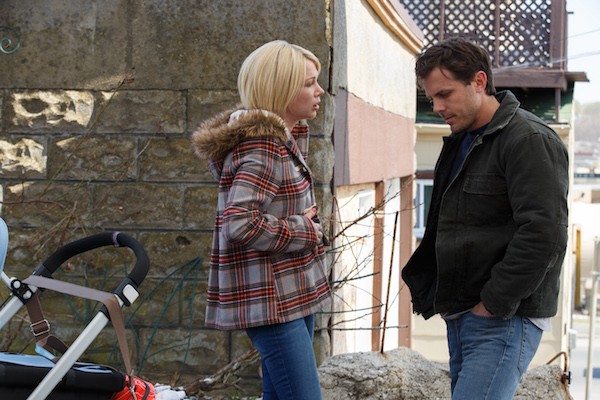
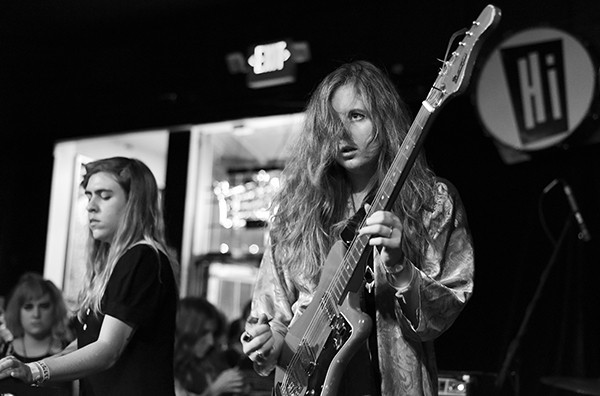 Brandi Rinks
Brandi Rinks 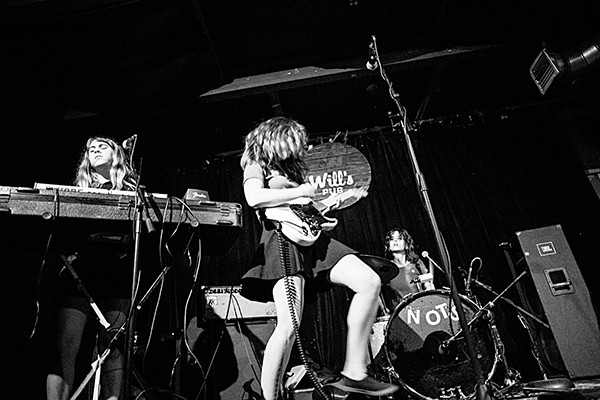 Olivia Zuk
Olivia Zuk